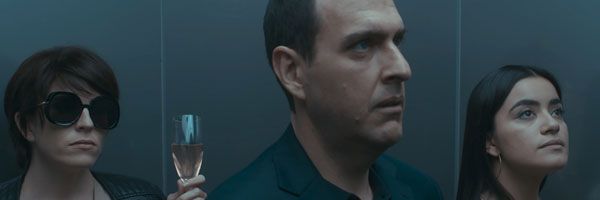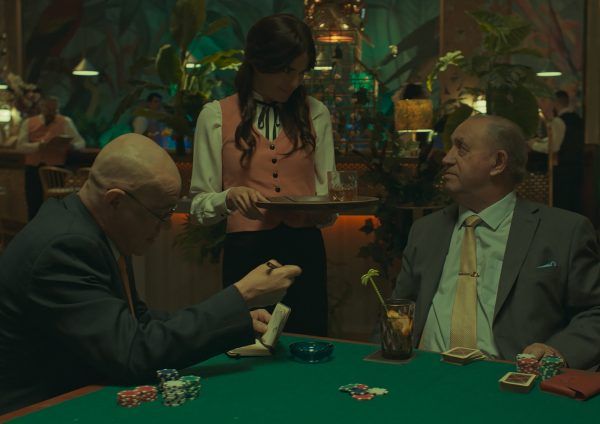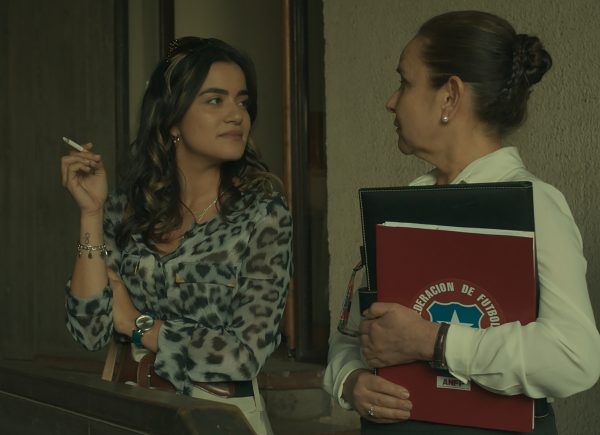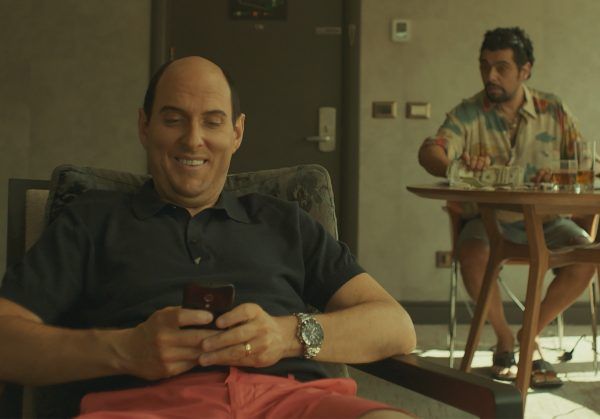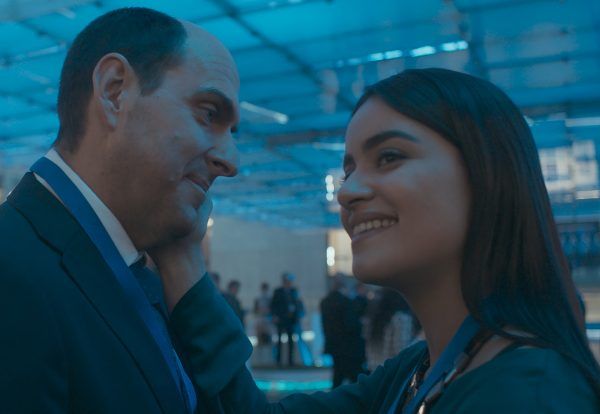From creator/executive producer/director Armando Bó, the eight-episode satirical dramedy series El Presidente (available to stream at Amazon Prime Video) explores the largest corruption scheme in the world of soccer, which lead to the presidents of all of South America’s soccer federations ending up behind bars. The sports scandal is explored through the story of Sergio Jadue (Andrés Parra), a small-time Chilean fútbol club president who found himself under pressure from the FBI, as FIFA Gate came to light.
During this 1-on-1 phone interview with Collider, Bó talks about telling this corruption scandal with the spin of a satire, being the first Chilean original series at Amazon Prime Video, wanting to give this series a very cinematic look, how they assembled the international cast, what he’s most proud of with this series, and his hopes for his new production company, About Entertainment.
Collider: This show is so interesting, fascinating and wild, and the truth really is stranger than fiction.
ARMANDO BO: It was a big corruption scandal, but we didn’t want to do it in just a normal way. We really wanted it to be satire and to have fun with this crazy world. There was already diplomatic immunity, so imagine how free they were to move in the world.
What does it mean to you to be the first Chilean original series, on a platform like Amazon, and to have people be able to access your work, in that way?
BO: It's great. It’s a big opportunity. With the content from around the world, everybody knows how to recognize a good story. We are experiencing a pandemic, so everybody needs to watch things. Content is part of the lives of people, more and more, so I took this opportunity in a big, positive way. I’m really motivated, and I was looking for this opportunity to do a big thing, related to Latin America, but for all of the world. It’s being released around the world, so it’s a great opportunity for me and to open this new entertainment company. It’s a reaction to the positive feeling that we have with this show. Hopefully, this pandemic will end, and we can look to the near future.
This show marks your first TV project, but it’s got a very cinematic look and an international feel to it. How did you approach directing it? Were there filmmaking techniques that you wanted to be sure to bring to the show, or were there things that you wanted to try that you had never been able to try with film?
BO: It’s my first TV show, but I know how difficult it is. I came to this with a lot of experience, doing films and commercials, and writing, and having a company, too. I felt really sure about the process, and it felt like a great moment to have my first TV project because it didn’t feel like that. And the next project that I do, I’ll have this experience. I learned a lot about what I should do and not do. Hopefully, you don’t see it in the show, but I learned many things. It has a cinematic look, but this kind of story has all of the elements that allowed me to make a special and unique visual world. I was really afraid before I shot this. In the time that you shoot eight hours of content, you could shoot a movie. Doing this as a parody, I’m happy with the decision we made to do this the way that we did, even though it was a crazy one and not everyone was really secure. We did the right thing, by not doing a straight corruption scandal from Latin America.
One of the biggest differences between film and TV is that on a TV series, you have a team of writers. How did you find the experience of working with a team on this?
BO: It was a big deal to write with so many people. You also have many directors and many producers. That’s one of the biggest challenges. In America, it’s more common, but for me, it was my first attempt. It was a big opportunity, but it’s also dangerous because you can lose the point of view. You can’t be over everything, but you have to try to be over everything because it’s one vision and you have to align so many people, with all of the writers, directors and producers. It’s a big deal to try to align the point of view and the feeling of what you want to tell. Because this show is comedy and parody, it was more difficult. Not everyone has the same type of humor. So, it was a big deal to try to achieve that with every episode and to keep that aligned, throughout the show.
How did you approach the casting for this? Did you meet with and speak to a lot of different actors?
BO: It’s like the UN from Latin America. It’s like when you’re speaking English and you can hear the difference between English from England and from America. So, I was afraid of finding all of these actors and how it was gonna be. I was afraid that it wouldn’t work. But I think they look pretty natural, all together. We had casting sessions in Chile, Mexico and Argentina. It was a big thing, from the production side, too. We had access to some of the best actors, and they were so professional and talented. They were at the level that they needed to be. Doing a TV show is like a machine that moves and moves, and it’s non-stop. I didn’t have a lot of time to work on the performances and the accents, but I trusted them on their instincts. When you start working, everything starts to align, and I felt like the energy was right.
Sports have always been popular and important to people, around the world, but even more so now, with everybody missing sporting events so much, do you think it will create even more interest in this show?
BO: It’s a different animal, in a way. This TV show is not about fútbol. Yes, it’s related to the business of fútbol, but it’s not about the sport. It’s not a docu-series. It’s difficult to do good fiction that’s believable and also different and that has a point of view. Everyone is looking for content, so it’s about doing and being something different.
Are there challenges that are specific to being the showrunner and director of a show?
BO: It was a crazy, difficult adventure. I spent so much energy, blood and time on it, and my family supported me, so much. It was really difficult, directing the first two and the last two, along with being the showrunner and also writing. It became really personal. For me, it was a big opportunity to do something that matters, of this kind of quality. I wasn’t going to relax and stop and see how it goes. There were so many things that could have happened that could have put the show in another place. So, it was a big challenge, but also a big opportunity. I’m happy that, if we are talking, it’s because I made something good.
Now that you’ve finished this series, what are you most proud of, as far as what you were able to accomplish with it?
BO: What I accomplished is that I proved to myself that I can do premium content. It’s really a different animal. There’s so much less time to produce and shoot. I was a little afraid of keeping the quality. I accomplished a lot, and I also learned a lot. To keep learning is important. That’s great. I accomplished a lot, doing this TV show and starting this new company, and I hope the company drives me to do many interesting films and TV show that we can be proud of.
You’ve also recently started a new production company and you’re going to be producing scripted and non-scripted content. What are the dreams and goals that you have for the company?
BO: My dream is to keep doing what I want to do. I’m at a time in my life where I just want to try to do the things that I like. It’s difficult to do something when I don’t really feel it and I don’t like it. I want to try to produce more quantity of good stories, where everything can have a point of view attached. It’s a company with really strong executives from Latin America, who are really experienced in TV and film. I wanted a company that’s crafted to produce good content with an international performance, that also keeps the quality. We don’t want to do just whatever. We want to do the best movies with the best execution and quality as possible.
How do you know when you come across a story that you want to tell and that you feel is a good story? Is it a gut feeling?
BO: I’ve learned to believe in what I feel, like when something in your stomach tells you that this is a great story. And then, of course, there is a lot of work behind that, to make that first feeling come through. I’m fourth generation of filmmakers. I was born hearing about stories and hearing about characters. There’s a particular taste that I developed, but it’s also being open to good stories. They can come from wherever. It’s not just one place. I’m open to finding them anywhere, whether it’s from a character, from a book, from the newspaper, or from reality. I just have my instincts ready, and my partners are really important. They know what I like and what they want, and then we try to curate it and have a perspective, as well. It’s about finding interesting things.
Do you know what the next thing is that you want to do yet, and have you thought about how to go into production, in a safe way?
BO: We have a couple of things and are starting to see what the right moment is. We just opened the company, so we weren’t ready to go right now. And of course, the world also gave us this time to keep working and developing. Let’s see, maybe a vaccine will suddenly appear. We are trying to think about how to produce in this moment, and we need to be smart and creative about the content that we do now. We’re right exactly in that moment.
El Presidente is available to stream at Amazon Prime Video.

